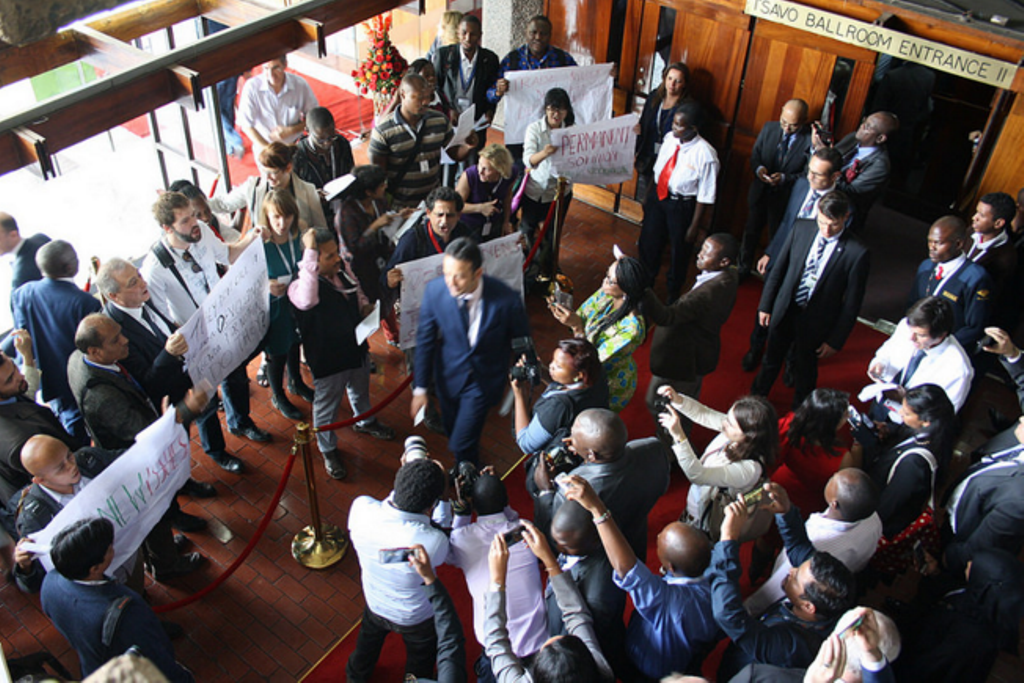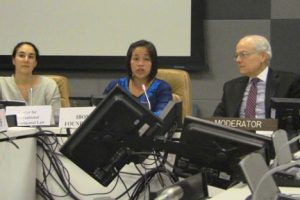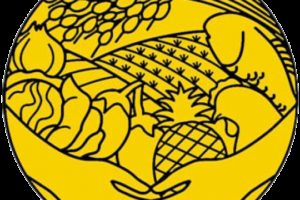IBON International Updates #15
Trade
[[{“type”:”media”,”view_mode”:”media_large”,”fid”:”1330″,”attributes”:{“alt”:””,”class”:”media-image”,”height”:”320″,”style”:”width: 350px; height: 233px; margin: 5px; float: right;”,”typeof”:”foaf:Image”,”width”:”480″}}]]
Attempts to kill the Doha Development Agenda (DDA) exposes the WTO’s pretentious claims that it seeks to support development in the Global South.
Nairobi, 16 DECEMBER – From 15 to 18 of December Kenya is hosting the first ministerial meeting of the World Trade Organization (WTO) on African soil. The meeting comes more than 20 years after the conclusion of the Marrakesh Agreement in Morocco, which led to the creation of the WTO in January 1995.
WTO member states will be seeking to secure “deliverables” during their four-day meeting in areas such as agriculture, transparency measures, steps on special and differential treatment for developing countries and Least Developed Countries (LDCs), and some other specific issues for LDCs.
Kenya’s Cabinet Secretary for Foreign Affairs and International Trade and Chair of the Conference, Ms. Amina Mohamed, urged delegations to compromise in order to secure a successful Nairobi deal, noting that apart from a weak global economy, WTO members are faced with a risk of economic fragmentation through preferential trade agreements which, while useful complements, cannot replace the multilateral trading system represented by the WTO.
The most contentious issue in this Ministerial is the future of the Doha Development Round (DDR) of negotiations, which was launched in 2001. The DDR is supposed to address the imbalances in the existing agreements that are onerous for developing countries. But developed countries have stubbornly refused all the proposed changes that would give developing countries more flexibility under WTO rules and provide more space to adopt policies in line with their national interests.
Agriculture is especially contentious as developed countries refuse to reduce their subsidies for domestic agribusiness that prove harmful to agriculture, food security and farmers in developing countries. On the other hand, developing countries have been fighting to be allowed under WTO rules to invest in their own agricultural production and strengthen domestic food security programs.
While the DDR has languished for 14 years, developed countries have been more successful in pushing their neoliberal agenda through bilateral, regional and plurilateral trade negotiations such as the Trans-Pacific Partnership (TPP), Transatlantic Trade and Investment Partnership (TTIP), Trade in Services Agreement (TiSA), Information Technology Agreement (ITA) and Environmental Goods Agreement (EGA). Now they want to push the envelope further by putting a close to the DDR and introducing all the “new issues” they have long wanted to enforce globally through the WTO including new rules on investment, government procurement, disciplining state owned enterprises, and others. Many of these issues are technically not permitted to be included in the negotiating agenda in the WTO while the DDR is not concluded.
In Nairobi, the United States (US) has led the charge of developed countries to sneak in so-called 21st century trade issues in the post-Nairobi work programme of the WTO. The draft ministerial declaration released on December 16, for instance, states,
“We agree that the WTO should have the ability to take on, at least on an exploratory basis, any trade-related issues deemed necessary in order to stay relevant and in keeping with the evolution of the global economy.”
In response, global activists are saying that the attempts to put an end to the DDR exposes the WTO’s pretentious claims that it seeks to support development in the Global South.
Antonio Tujan Jr. of IBON International said, “The US and other developed countries are determined to make Nairobi the burial ground of the Doha Development Round. The reason they want to kill the Doha Development Mandate is to introduce new issues into the multilateral trading system — new rules that would empower their transnational corporations and bolster their dominant position in the world economy.”
According to IBON International, introducing these ‘new issues’ into the WTO would severely limit the capacity of developing countries to actualize national development policies and build up their own infant industries.
Outside the Kenyatta International Conference Centre, some 200 activists from 12 countries joined grassroots organizations in Nairobi, Kenya to protest 20 years of the WTO’s broken development promises. Simultaneous actions were held in the Philippines, Indonesia, Pakistan and other countries spearheaded by the Asian Peasant Coalition and the International League of Peoples Struggles.
Gacheke Gachihi of Bunge La Mwananchi (Parliament of the People) said, “20 years of WTO have been 20 years of opening up the world to transnational corporate plunder while billions of people languish in poverty, hunger, unemployment, and environmental catastrophes.”
Wali Haider from the Asian Peasant Coalition said, “The WTO is not about free trade or development. It allows wealthy industrialized countries to heavily subsidize their agribusinesses and dump their produce in other countries. Small farmers in poorer countries who are unable to compete are buried in debt and often end up dispossessed of their land and livelihoods. At the same time WTO rules prevent countries from adopting measures to guarantee food security and maintain decent family farmer incomes.”
Leonida Odongo of Fahamu, a network of movements for social justice in Africa, warned that, “The 10th WTO Ministerial in Nairobi is set to perpetuate the same neoliberal free trade agenda, and more! Developed countries led by the US want to include ‘new issues’ in negotiations that include proposals to further open up public services and procurement to foreign investors, strengthen protections for foreign investments, tighten intellectual property rights of corporations while restricting the ability of governments to regulate corporate activity for the public interest.“
Protesters marched in front of the Ministerial venue as Ministers filed in for the opening of the MC10, chanting “20 years of the WTO is enough! No to WTO Expansion, No to new issues in the WTO!” They held banners calling for “Junk WTO!” #



